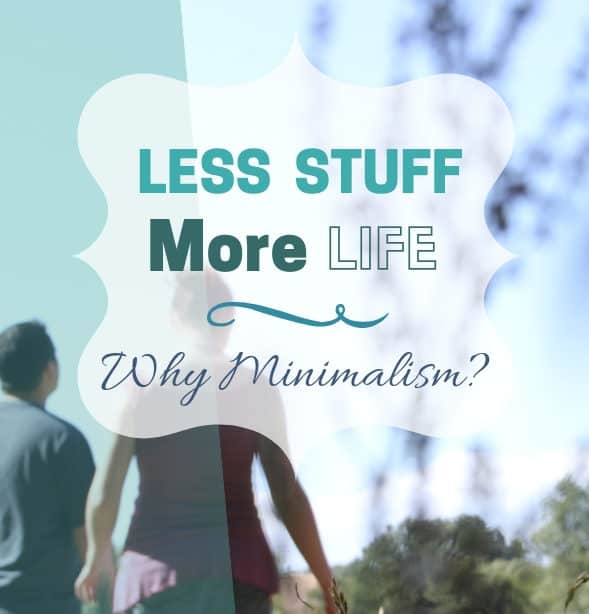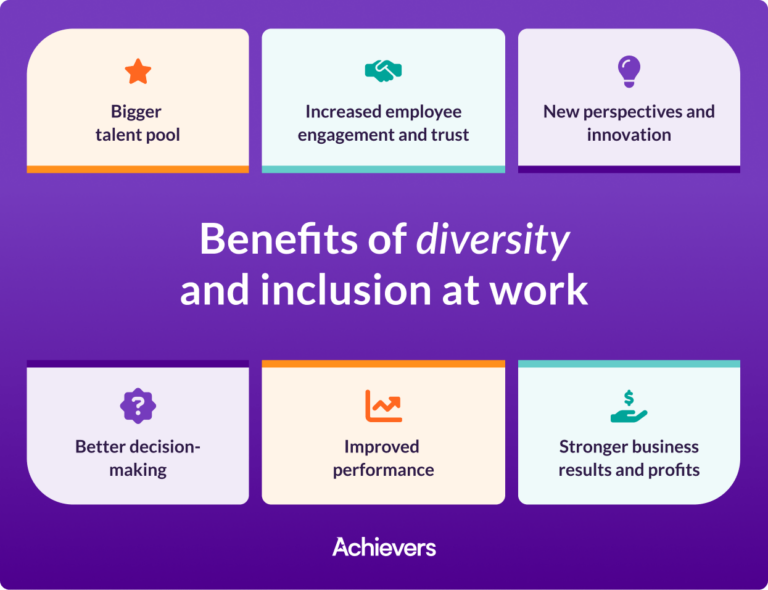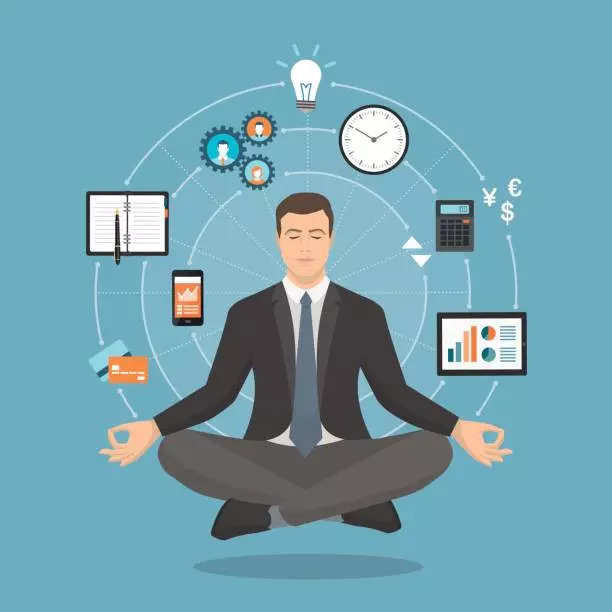Minimalism: How Less Can Be More in Life
Minimalism emphasizes simplicity and intentionality. By reducing clutter, individuals can focus on what truly matters.
Minimalism is a lifestyle choice that promotes the idea of living with less to gain more. It involves decluttering physical spaces and prioritizing meaningful experiences over material possessions. This approach helps reduce stress, increase focus, and create a sense of freedom.
Practicing minimalism allows people to break free from the consumer culture and find contentment in simplicity. By embracing minimalism, individuals can lead more fulfilling lives, concentrating on relationships, personal growth, and wellbeing. This philosophy encourages mindful consumption, which can positively impact mental health and environmental sustainability. Minimalism proves that less can indeed be more in life.
Introduction To Minimalism
Minimalism is a lifestyle choice focusing on simplicity and clarity. It promotes living with fewer possessions. Minimalism seeks to reduce clutter and distractions. This way, you can focus on what truly matters. Many people find joy and freedom through this practice.
What Is Minimalism?
Minimalism means owning fewer things. It emphasizes quality over quantity. The goal is to have only what you need. This approach can apply to all areas of life. It includes home, work, and even relationships. Minimalism is about removing excess and creating space for more important things.
History And Origins
The roots of minimalism can be traced to ancient philosophies. The idea of simple living has existed for centuries. For example, Buddhism and Stoicism both encourage minimalistic lifestyles. The modern minimalism movement began in the 1960s. Artists and designers started to embrace simplicity in their work. They focused on clean lines and open spaces. This aesthetic soon spread to everyday living.
Today, minimalism is a popular choice for many. People seek to declutter their lives and find peace. The movement continues to grow and evolve. Minimalism is not just about owning fewer things. It is about finding happiness with less and focusing on what truly matters.
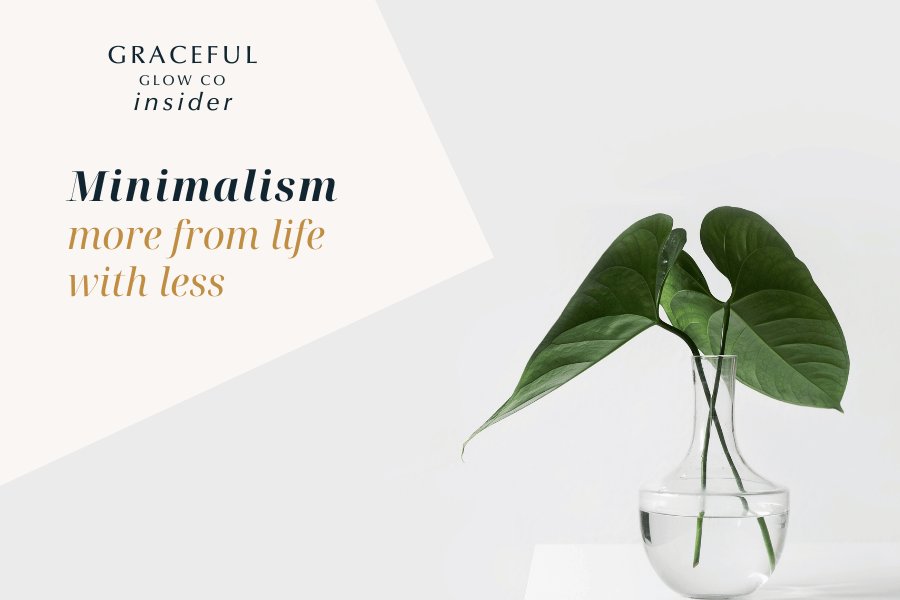
Credit: www.gracefulglowco.com
Benefits Of Minimalism
Minimalism is about living with less. It helps you focus on what matters. There are many benefits of minimalism that can improve your life.
Mental Clarity
Minimalism brings mental clarity. Fewer items mean less clutter. A tidy space leads to a tidy mind. This reduces stress and helps you think clearly.
Here are some benefits of mental clarity:
- Better focus
- Less anxiety
- Improved creativity
Financial Freedom
Minimalism offers financial freedom. You spend less money on things you don’t need. This helps you save more and reduce debt.
Here are some benefits of financial freedom:
| Benefit | Description |
|---|---|
| More savings | Save money for future needs |
| Less debt | Pay off loans quicker |
| Financial security | Feel secure about your finances |
Decluttering Your Space
Embracing minimalism means valuing quality over quantity. This mindset starts with decluttering your space. Simplifying your surroundings can lead to a more peaceful and focused life. Here, we will explore two key areas: physical decluttering and digital decluttering.
Physical Decluttering
Begin by sorting through your physical belongings. Ask yourself if each item adds value to your life. Use the Marie Kondo method: keep only what sparks joy. Here’s a simple approach:
- Start with one room at a time.
- Divide items into three categories: keep, donate, and discard.
- Organize what you keep in a neat and accessible manner.
Consider using storage solutions like shelves and bins. This helps maintain order and reduces clutter. An organized space improves your productivity and mental clarity.
Digital Decluttering
Digital clutter can be as stressful as physical clutter. Start by cleaning your digital devices. Delete unnecessary files, photos, and apps.
Follow these steps to declutter your digital space:
- Unsubscribe from unwanted emails and newsletters.
- Organize files into clearly labeled folders.
- Backup important data to an external drive or cloud storage.
Minimize your social media use. Remove apps that waste your time. A clean digital space enhances your focus and reduces stress.
By addressing both physical and digital clutter, you create a serene environment. This supports a minimalist lifestyle and allows you to enjoy the benefits of having less.
Minimalist Lifestyle Tips
Adopting a minimalist lifestyle can bring peace and clarity. It involves reducing clutter and focusing on what truly matters. Here are some practical tips to help you live a more minimalist life.
Simplifying Possessions
Start by going through your belongings. Keep only what you use or love. Donate or sell items that no longer serve a purpose. This step will make your space feel lighter and more organized.
Use the one-in, one-out rule. For every new item you bring in, remove one old item. This helps maintain balance and prevents clutter from accumulating.
| Category | Action |
|---|---|
| Clothing | Donate clothes you haven’t worn in a year |
| Kitchen | Give away duplicate utensils |
| Books | Keep only your favorites |
Mindful Consumption
Before buying something new, ask yourself if you really need it. Focus on purchasing items that add value to your life. This practice helps you save money and reduce waste.
Embrace digital solutions. Instead of buying physical books or DVDs, consider digital alternatives. This reduces physical clutter and is often more environmentally friendly.
- Make a shopping list before buying anything.
- Avoid impulse purchases.
- Choose quality over quantity.
By adopting these mindful consumption habits, you’ll find more peace and satisfaction in your daily life.
Minimalism In Relationships
Minimalism isn’t just about reducing physical clutter. It extends to relationships too. Embracing minimalism in relationships can lead to deeper connections. Focus on quality and clear communication.
Quality Over Quantity
Having many friends isn’t always better. Prioritize deep connections with a few. This approach leads to more meaningful interactions. Quality relationships bring joy and support. They enrich your life more than numerous shallow ones.
Minimalism in relationships means valuing depth over numbers. Spend time with those who matter most. Cherish the moments you share with them.
Effective Communication
Clear and honest communication is crucial. Minimalism encourages you to be direct and transparent. Avoid unnecessary words and focus on the message. This makes your interactions more meaningful.
Effective communication also involves active listening. Pay attention to what others say. Respond thoughtfully and genuinely. This strengthens your bond and builds trust.
Here’s a simple table to summarize:
| Aspect | Minimalist Approach |
|---|---|
| Friends | Few but deep connections |
| Communication | Clear, honest, and direct |
| Time | Quality moments over quantity |
By focusing on these aspects, you can cultivate richer and more rewarding relationships.
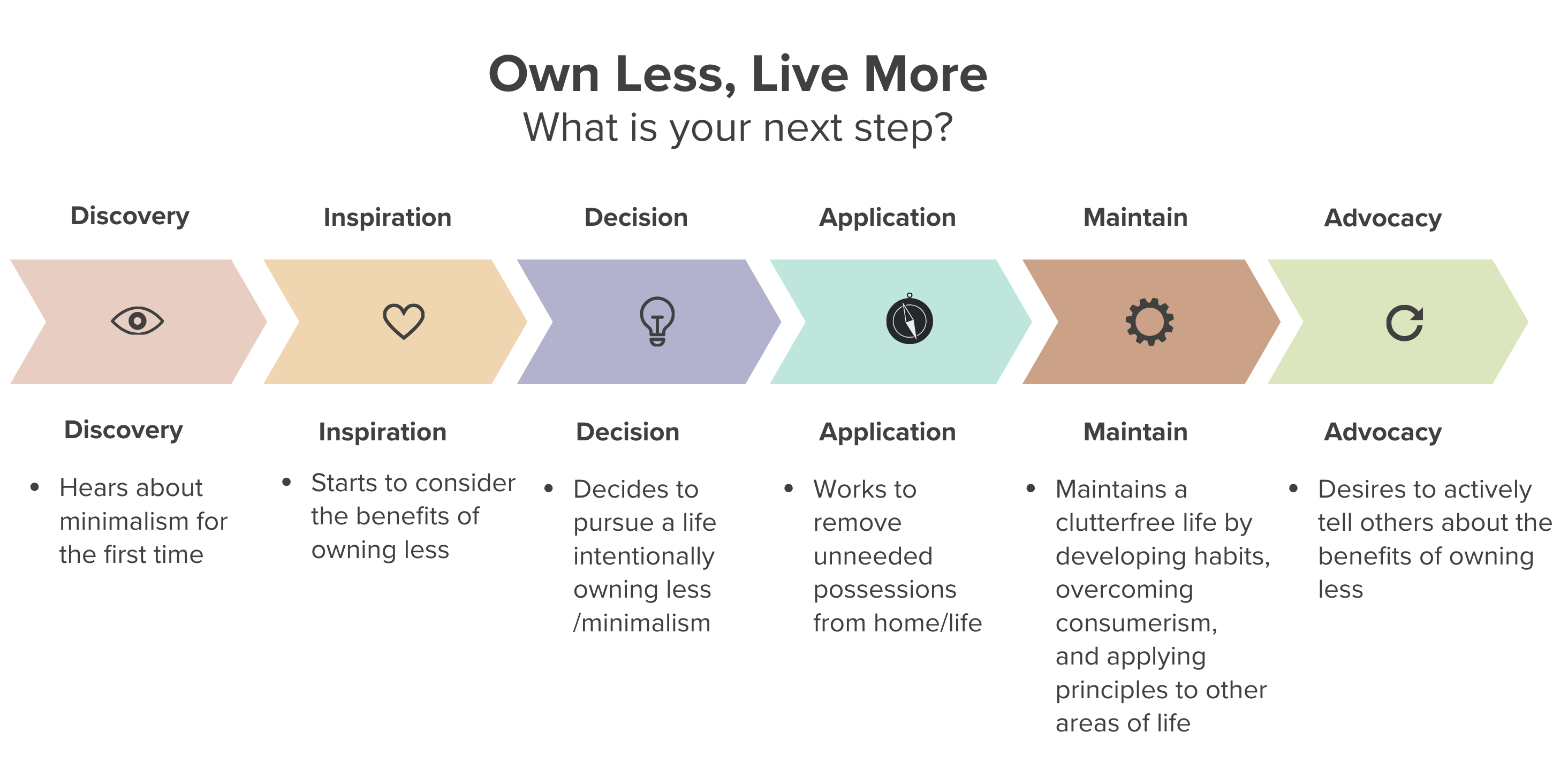
Credit: www.becomingminimalist.com
Minimalism And Mental Health
Minimalism is more than just a lifestyle; it’s a way to mental peace. By removing excess, we clear our minds and focus on what matters. This approach has significant benefits for our mental health.
Reducing Stress
Clutter can cause stress. A clutter-free space helps us feel calm. Less stuff means fewer distractions and less anxiety. You can breathe easier with a minimalist environment.
Minimalism involves keeping only what you need. This practice reduces decision fatigue. Fewer choices make daily life simpler and less stressful.
| Cluttered Space | Minimalist Space |
|---|---|
| High stress levels | Low stress levels |
| More distractions | Fewer distractions |
Enhancing Focus
A minimalist lifestyle enhances focus. Fewer distractions help you concentrate better. This leads to improved productivity and efficiency.
With less clutter, your mind can focus on important tasks. You can work more effectively and achieve your goals faster.
- Clear desk, clear mind
- Fewer items, more focus
- Simple environment, better concentration
Minimalism also promotes mindfulness. Being mindful helps you stay present and engaged. This improves both mental and physical health.
Minimalism In Finances
Minimalism in finances can transform your life. It teaches you to value experiences over possessions. This approach helps you save money and reduce stress. Let’s explore how you can apply minimalism to your finances.
Budgeting Essentials
Creating a budget is the first step towards financial minimalism. A simple budget includes all your income and expenses. Here’s a basic table to get you started:
| Category | Monthly Amount |
|---|---|
| Housing | $1000 |
| Food | $300 |
| Transportation | $150 |
| Utilities | $200 |
| Entertainment | $100 |
| Savings | $250 |
List your expenses and categorize them. Prioritize essential categories like housing and food. Track your spending to avoid unnecessary purchases. This simple practice can save you a lot of money.
Smart Investments
Smart investments are key to a minimalist financial life. Focus on low-risk, high-reward opportunities. Consider these options:
- Index funds
- Real estate
- High-yield savings accounts
Index funds are great for long-term growth. They offer broad market exposure with low fees. Real estate can provide rental income and appreciation. High-yield savings accounts offer better returns than traditional accounts.
Diversify your investments to spread risk. Use automated tools to manage your portfolio. This ensures you spend less time worrying about your investments. Remember, the goal is to simplify and secure your financial future.
Minimalism For Families
Minimalism isn’t just for singles or couples. Families can also embrace this lifestyle. It helps in creating a peaceful home environment. It encourages meaningful interactions and reduces stress.
Family Activities
Family activities don’t need to be expensive or complex. Simple activities can bring joy and strengthen family bonds. Here are some ideas:
- Nature Walks: Explore local parks or trails. Enjoy the fresh air and bond over nature’s beauty.
- Board Games: Play classic games like Monopoly or Scrabble. It encourages teamwork and critical thinking.
- Cooking Together: Prepare meals as a family. It teaches kids cooking skills and promotes healthy eating.
Simplified Parenting
Parenting can be overwhelming. Minimalism helps simplify it. Focus on what truly matters. Here are some tips:
| Tip | Benefit |
|---|---|
| Declutter Toys | Fewer toys mean less mess and more creativity. |
| Minimal Wardrobe | Simple clothing choices save time and reduce stress. |
| Routine | A consistent routine provides stability and security. |
Embrace these tips to simplify your parenting journey. Enjoy more quality time with your family.
Sustainable Minimalism
Minimalism is about finding joy in simplicity. It’s not just about fewer things. Sustainable minimalism goes further. It focuses on making eco-friendly choices. This lifestyle can help save the planet.
Eco-friendly Choices
Choosing eco-friendly products is key. Buy items made from recycled materials. Avoid single-use plastics. Use reusable bags, bottles, and containers. Choose energy-efficient appliances. These small changes make a big impact.
Look for products with minimal packaging. Support brands that care for the environment. Many companies now offer sustainable options. They use natural materials and less energy. These choices help reduce your carbon footprint.
Long-term Impact
Sustainable minimalism has long-term benefits. It helps reduce waste. You save money by buying less. Less clutter means less stress. You focus on what truly matters.
Living simply teaches children valuable lessons. They learn to appreciate what they have. They grow up understanding the importance of sustainability. This lifestyle creates a healthier planet for future generations.
Consider these benefits:
- Reduced waste
- Lower expenses
- Less stress
- Healthier lifestyle
- Cleaner environment
These long-term impacts make sustainable minimalism a worthy choice.
Challenges And Misconceptions
Minimalism encourages simplicity and focus on what truly matters. It often faces skepticism. Some people find it hard to adopt a minimalist lifestyle. There are several challenges and misconceptions surrounding minimalism.
Common Myths
Many believe minimalism means living with almost nothing. This is not true. Minimalism is about prioritizing essentials and eliminating excess.
- Myth 1: Minimalists own very few things.
- Reality: Minimalists own what they need and value.
- Myth 2: Minimalism is only for the wealthy.
- Reality: Minimalism suits any budget and lifestyle.
Overcoming Obstacles
Embracing minimalism can be challenging. But these obstacles can be overcome with simple steps.
- Start Small: Begin with one room or area.
- Declutter Regularly: Make decluttering a routine habit.
- Focus on Benefits: Remember the mental and physical benefits.
| Challenge | Solution |
|---|---|
| Attachment to items | Evaluate true value and utility |
| Lack of time | Set small, manageable goals |
| Social Pressure | Stay true to personal values |
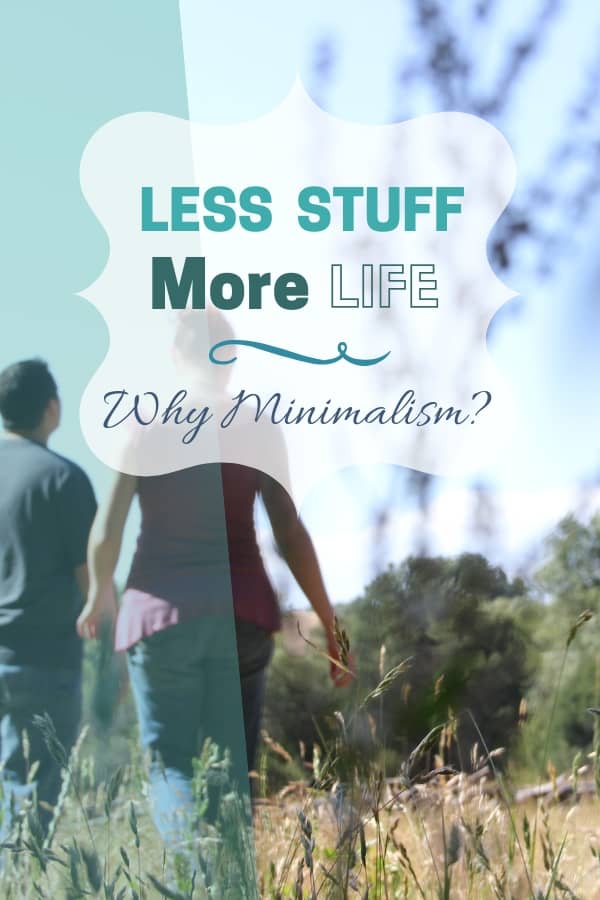
Credit: www.lauranoelle.com
Conclusion
Embracing minimalism can transform your life by reducing stress and clutter. Focus on what truly matters. Simplify your surroundings and prioritize experiences over possessions. This lifestyle shift promotes happiness and mental clarity. Start small, and gradually incorporate minimalist principles. Discover how living with less can lead to a more fulfilling life.

